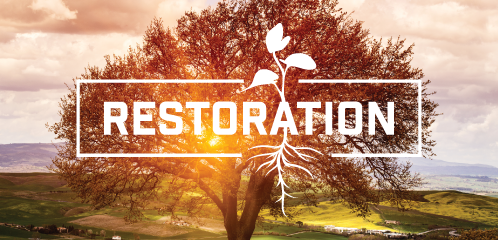Watershed restoration helps keep streams, rivers, and creeks clean, supports salmon recovery, reduces flood and landslide hazards, builds community resiliency, and makes our region healthier for people, plants, and wildlife. Ultimately, it leads to cleaner water and makes us more prepared for wetter winters and hotter, drier summers.
Despite its scenic beauty, the final 11 miles of the Willamette River near Portland have been blighted by industrial pollution for over 100 years. To address these impacts, the Portland Harbor Natural Resource Trustee Council has worked to maximize the benefits of restoring habitat through an innovative mechanism called Restoration in Portland OR.
By allowing private developers to build conservation projects and offer “credits” that offset the ecological impact of their industrial pollution, this process allows these projects to get underway sooner than they would otherwise. It also allows the Trustee Council to resolve ecological liabilities more quickly than if they tried to settle these claims directly with polluters.
Since the early 1980s, the Trustee Council has recognized more than a dozen restoration banks. These projects, built by private landowners or contractors, range from wetlands to habitat for migratory birds and fish to watershed-scale restoration. Many of these projects have become models for addressing complex environmental issues in a timely manner while still maximizing the ecological benefit to the area.
In the past, Johnson Creek frequently flooded homes, sparked landslides, and created navigational hazards for vessels using Multnomah Channel. To help protect the city, the Bureau of Environmental Services (BES) restored the creek’s floodplain and removed a rock lining that had been added in the 1930s to make the creek run more quickly for rail traffic.
By restoring the floodplain, the BES helped reduce the number of homes that needed to be bought out of the floodplain, and created habitat for fish and other species that will thrive in the new conditions. The BES also reconnected the creek to the Portland Harbor and removed three bridges and roads from its floodplain, improving the ability of the creek to absorb stormwater and slow its flow.
The Latino Network Family Stability Programs provide culturally specific intensive case management to help families stay in stable housing. The Portland Housing Bureau provides funding to community organizations to provide home retention counseling for homeowners at risk of losing their homes to foreclosure. Portland Housing Bureau also offers home repair assistance to low-income senior or disabled homeowners through its REACH and Community Builders programs. These programs provide accessibility adaptations such as wheelchair ramps and handrails. They also fund critical safety repairs for low-income homeowners, including those with asthma or other chronic respiratory conditions. These safety and health improvements help ensure that seniors and people with disabilities can live in their own homes safely and independently for as long as possible.
